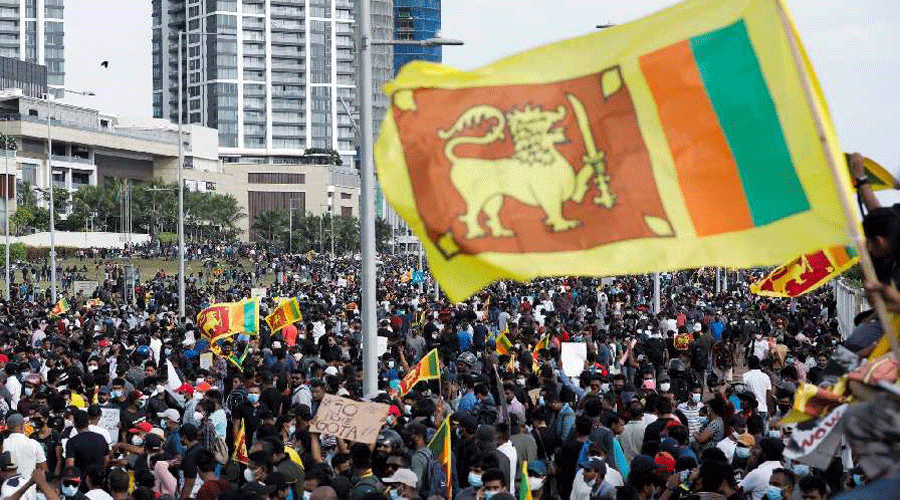Former Sri Lankan President Chandrika Bandaranaike Kumaratunga on Sunday said the Constitution of India with its federal and secular structure helped create a modern and stable state that stood in sharp contrast to her country.
She described her own country as a "failed state" because Colombo did not give equal rights to minorities and did not have a proper power-sharing arrangement with all the provinces.
Kumaratunga said this while delivering the Unesco Goodwill Ambassador Madanjeet Singh Memorial Lecture organised by the South Asia Foundation and the Asian College of Journalism via virtual mode.
Painting a rather bleak picture of her country at 75, she contrasted it with India, which also secured independence around the same time. While lauding the constitutional framework of India, Kumaratunga was careful not to comment on what is happening in the country today, maintaining that it was not her remit.
"We have poorly managed the essential task of nation-building," she said, underscoring the failure of independent Sri Lanka to weave together the diverse communities.
She said 75 per cent of Sinhalese felt discriminated against by the policy of divide and rule of the British, nursing the sentiment that the colonial rulers had favoured the minority communities and marginalised the majority community.
Independence gave the majority community the opportunity to rectify the situation which, the former President rued, did not happen. Instead of offering a just resolution to the minority issue by giving equal rights and power, the majority community gave itself all the privileges, Kumaratunga added.
She compared this to India, which obtained independence at the same time and proceeded to fashion a federal state with extensive power-sharing arrangements between the Centre and the states. The Indian Constitution, she said, created a secular federal state that helped "build a united stable and modern India" out of a country with manifold diversities along caste, creed, regional and linguistic lines.











